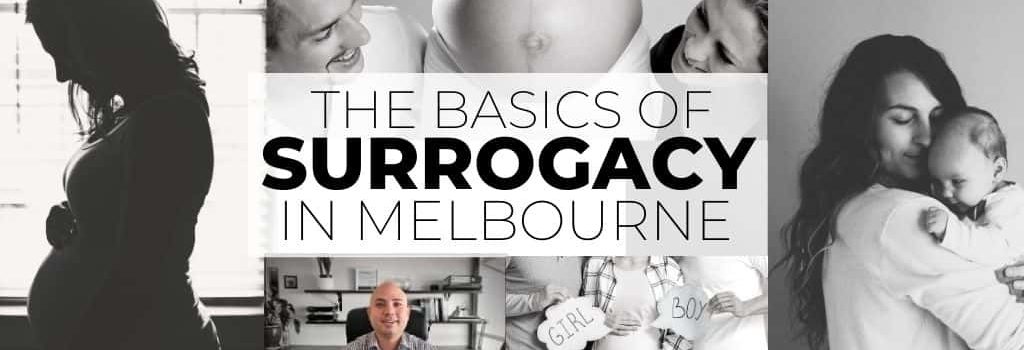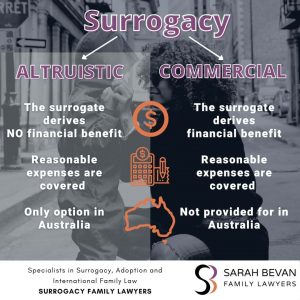- Sydney Family Lawyers
- (02) 9633 1088
- mail@sbfamilylawyers.com.au
The Basics of Surrogacy in Victoria
The Basic of Surrogacy in Melbourne, Victoria.
Surrogacy can fall into the categories of altruistic or commercial.
Altruistic surrogacy means that the surrogate derives no financial benefit from being a surrogate with the exception of having her reasonable expenses of the surrogacy paid.
Commercial surrogacy is the opposite, being an arrangement whereby the surrogate obtains a financial benefit beyond her expenses for carrying the child.
Only altruistic surrogacy is provided for in Australia.
Surrogacy laws are state-based, and there are often small but important differences between the states. The legislation in Victoria imposes various requirements on donors, surrogates and intended (commissioning) parents seeking to use surrogates, including age limits, counselling requirements, legal advice requirements and other matters.
One important point to note is that as intended parents of a surrogate child, you are not automatically considered the legal parent/s of the child.
You must follow the prescriptive legislative requirements to have the parentage transferred to you by the Court. The paramount consideration for the Court in determining such an application is the best interests of the child.
Surrogacy can be a complex legal issue, and if you are seriously considering surrogacy as an option for your family, you should speak to a lawyer.
One of the first things a lawyer will speak to you about is creating a Surrogacy Agreement between the surrogate and the prospective parents. This is an essential step in order to be able to make a successful application to be declared a legal parent of a child born by a surrogate.
For more assistance with the legal requirements and processes for surrogacy, you can speak to Sarah Bevan Family Lawyers who have helped a number of Australian families via surrogacy.

Alfonso Layson Surrogacy Family Lawyer Sydney ICL
Sarah Bevan and Alfonso Layson will be speaking at the National Australian Conference put on by Growing Families, in Brisbane on the 19-20 June 2021.
| Sat/Sun 19-20 June 2021 | Australian Conference | Hilton Hotel, 260 Queen St, Brisbane 9.30 am – 5.00 pm |





